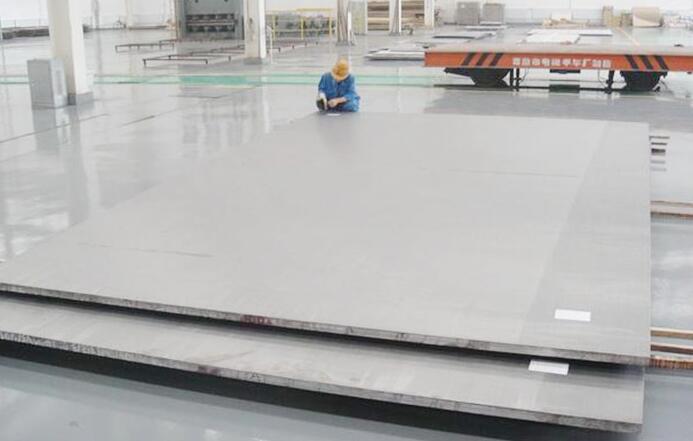As a material for various chemical reaction vessels and heat exchangers, titanium has excellent corrosion resistance and has been widely used in salt production, petrochemical industry, electric power, desalination and other fields. However, titanium has a disadvantage that it is difficult to process, resulting in higher costs. This problem is particularly acute when used as a structural component. An effective solution that has been proposed is the use of titanium clad steel plate.
.

Titanium clad steel plate is a metal composite plate that has good corrosion resistance by plating titanium on the surface of ordinary steel plate. It has both the strength of ordinary steel plate as a structure and the corrosion resistance of titanium metal. The most important thing is that the cost is greatly reduced, so it is widely used in various fields.
At present, there are three main manufacturing methods of titanium clad steel plates: explosion composite method, thick plate rolling method and continuous hot rolling method. The titanium clad steel plates manufactured by the explosion composite method and the thick plate rolling method are thick plates, which are mainly used as corrosion-resistant construction materials. The titanium clad steel plates manufactured by continuous hot rolling are thin plates, and the main application areas are marine civil engineering.
Titanium and its alloys have excellent resistance to seawater, chloride solution corrosion and fluid erosion. The evaporation chamber made of titanium clad steel plate has good effect on slowing down corrosion and preventing salt scale on the evaporation tank wall, prolonging the production cycle and improving the quality of salt, which greatly reduces the use cost of salt plant equipment.
Petrochemical vessel equipment manufacturing is the traditional application area of titanium-clad steel sheet material, and its consumption has been in the first place. Titanium has good stability in various acid, alkali and salt media in the chemical industry. Therefore, titanium-clad steel sheets play an irreplaceable role in refineries and chemical plants.
Titanium also has special corrosion resistance to bleaching agents such as chlorine dioxide, chlorite and chlorite. Therefore, titanium clad steel plates also have important applications in bleaching equipment in the textile printing and dyeing industry and the paper industry.
Thick cladding (multi-layer ≥ 8 mm), large plate width (single piece area ≥ 20m) titanium clad steel plate is the main material for nuclear power equipment condenser tube plate, the demand is very large, the application prospects are very broad.
Titanium and titanium alloys have excellent resistance to seawater, chloride solution corrosion and fluid erosion, and titanium is non-toxic and harmless, making titanium-clad steel plates become the ideal material for desalination equipment.
In summary, titanium clad steel plate has excellent corrosion resistance and strength, and is an ideal material for manufacturing equipment for corrosion resistant environments. With the continuous improvement of the production process of titanium clad steel plate, its application will be more widespread and common.